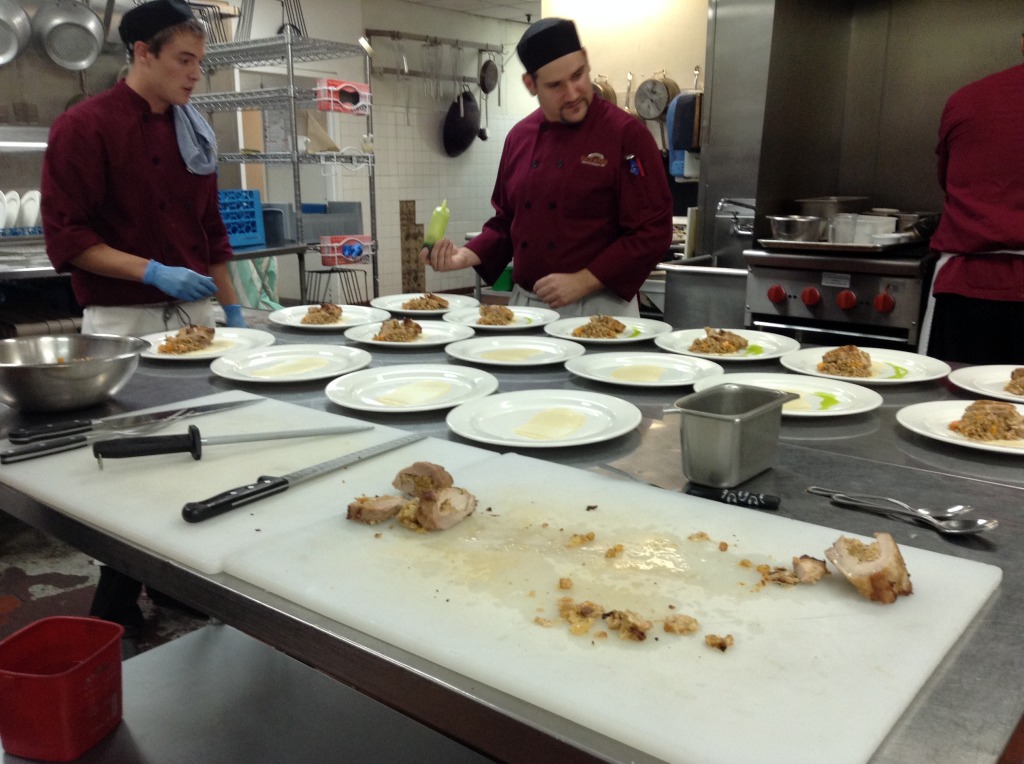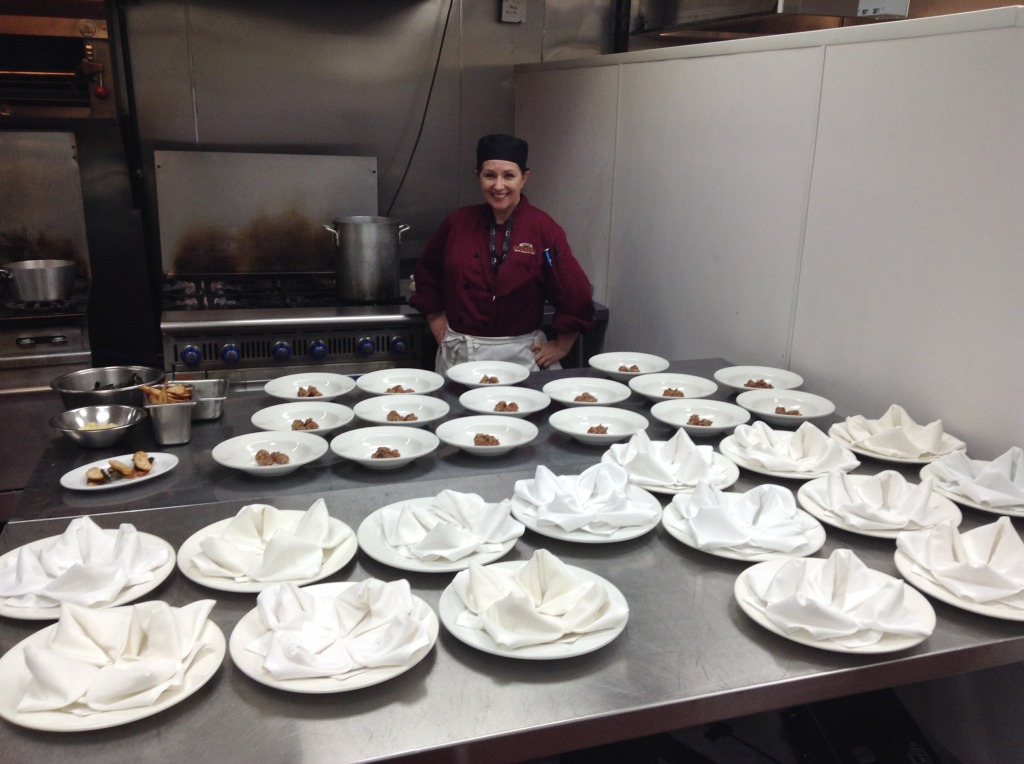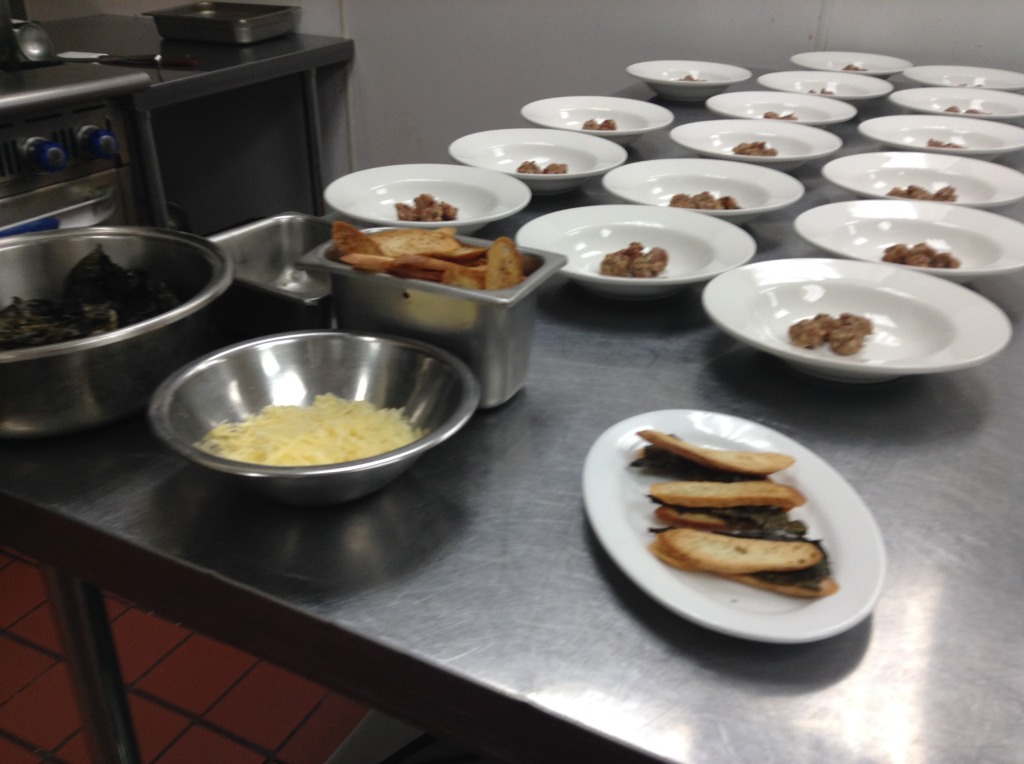By: Ryan Hodros, Culinary Arts Student
So what’s the difference between a chef and a cook? Is culinary school really necessary to make a chef? Or can you just watch a bunch of Good Eats on Netflix and know everything you need to know in order to survive in the industry? Is it better to simply start washing dishes tomorrow and start learning through apprenticeship? Do you really need to go to school to learn about food, or do you just need the piece of paper at the end of the road?

These are all legitimate questions that any prospective student (or industry professional) should ask, because going to culinary school is not a decision to be made lightly. Not only is it a significant monetary investment, there’s also a great deal of time and effort that goes into graduating culinary school. Even in a relatively streamlined program like Auguste Escoffier, it’s still 30 hours of class time per week, plus homework, reading, studying, at-home practice.
Wouldn’t it be easier and cheaper to simply dive right in? Buy some books and teach yourself as much as you can and just go out and start hacking away at the industry? This is an option that a lot of people have chosen throughout the years. And they say it works, so long as you have the ambition and drive to make it happen.

I’m not going to bore you with the common counterarguments—your career advances much more slowly, your training will be limited to the cuisine of the restaurant that teaches you, your network within the industry will be smaller and take longer to grow, etc. If you’ve put serious thought into going to culinary school, you’ve already taken this into consideration, and if you’re already out there neck deep in the industry, you have first-hand experience.
Instead, I’m going to discuss some of the things you learn in culinary school that you wouldn’t necessarily learn in an apprenticeship (and you certainly won’t learn from the Food Network). Things that make the difference between a cook and a chef.
My Culinary Arts class recently completed our culmination banquet wherein the seven of us planned and executed a four course mean for 16 guests on two separate dates. I’m not going to go into detail about the event (that’s a blog entry unto itself), but I will say that there is so much more to running a banquet than simply putting food over heat.

The project started with the menu development, which then moved on to costing. If you’ve never done costing, it’s where you break out precisely how much each item on your menu will set you back. When we realized our menu was going to put us over budget, we reworked the menu, then re-costed. This went back and forth a few times before we finally set a menu that would net a profit (all of this was theoretical for the class, you understand).
Next we worked out staffing, payroll, duties and responsibilities, and procurement of local product. This last item threw even more kinks into our menu plans because for the first date, we couldn’t find local beets or celery (and couldn’t order more from a broadliner, because the order deadline had past) and so had to rework things again. On the second date, we found beets and celery, but the price of pears for our dessert had shot through the roof, and so we had to rework that almost entirely.
These are all things that happened before the day of the actual banquet. Day of, in addition to making food, there was front-of-house to be taken care of, including décor, table set-up, AV presentation, music…it went on and on. And organizing the courses was a nightmare, getting plates to 16 people with three servers (who also had to cook, because we served for the day). Oh! And it included a vegetarian who required his own set of courses and had to be coordinated so that the vegetarian plates went to the right guy…
My point is that, sure, a smart and ambitious person could probably learn a great deal of technique at home with some online tutorials and a stack of library books. And through an apprenticeship, you could probably fill in the gaps (assuming you don’t mess up and get fired). But in Culinary School, you learn all of these things, plus a number of other subjects that you would learn by trial-and-error on the off chance that you got promoted to a position of management in a restaurant or banquet hall.

And that, in my opinion, is the difference between a cook and a chef. A cook is able to make food. Sometimes it’s amazing food that will change people’s ideas of what food is, but at the end of the day, it’s still food made by a cook. A chef can do the job of a cook, but is also a general—maneuvering his or her soldiers into position expertly so that they can do the most effective job possible. And the best way to learn that is in culinary school. You won’t necessarily come out a general, but you’ll at least know what the job entails.

